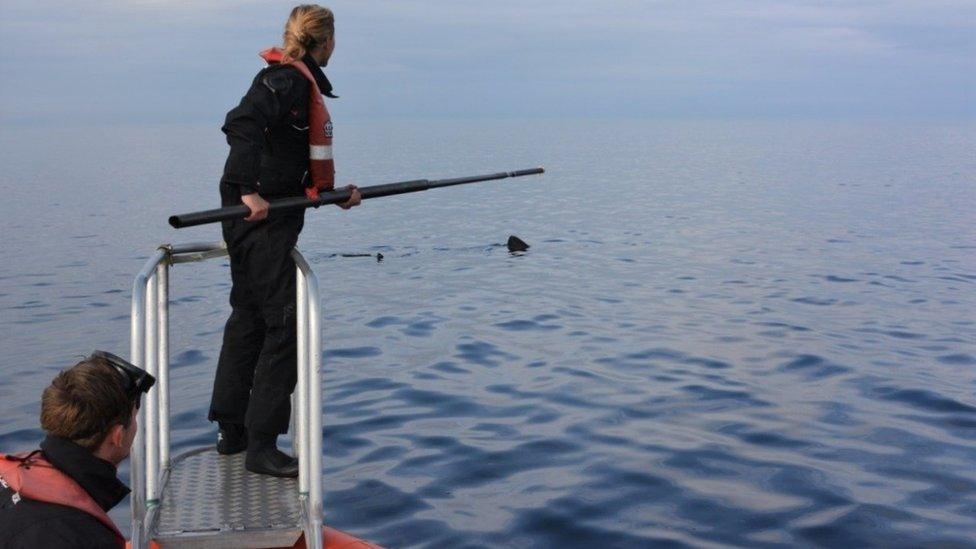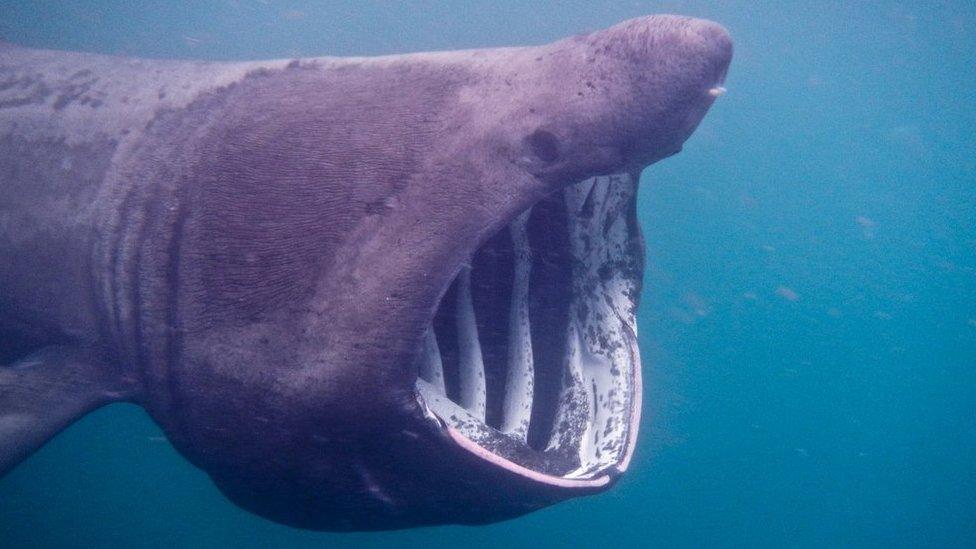Basking sharks 'hang out' in family groups
- Published

The research involved taking swabs of basking sharks' skin mucus
Basking sharks travel migratory routes in groups of extended family, a new study led by Scottish scientists has suggested.
Large groups of the fish gather in the Irish Sea and Scotland's Sea of the Hebrides from May to October to breed and feed on plankton.
Research led by the University of Aberdeen used genetic profiles of individual animals.
The scientists said it was possible the fish "hang out" with relatives.
Genetic profiles were created from DNA extracted from swabs of skin mucus taken from basking sharks swimming close to the surface as they fed. The sampled sharks included fish found off Scotland and Ireland in summer months.
Regular shark swabbing built up a register of more than 400 DNA profiles.
Dr Catherine Jones, who helped to lead the study, said: "Perhaps relatives hang out together, which could facilitate learning migration routes and encourage other cooperative behaviours.
"This means there's more going on in basking shark aggregations than first appears in that they don't fit the shark stereotype of a lonesome independent predator."

Basking sharks feed on plankton
Basking sharks, an endangered species, are the world's second largest fish after whale sharks and can grow to more than 10m (33ft) long.
Scientists in Norway and Ireland were also involved in the study, which has been published in the journal Scientific Reports, external.
Dr Lilian Lieber, of Queen´s University Belfast and another of the lead researchers on the project, said collecting DNA samples had posed a major challenge.
"A breakthrough came when we discovered our techniques worked on skin mucus," she said.
"We routinely swabbed aggregations of sharks quickly and with minimal disturbance, to obtain genetic profiles of individuals travelling together."